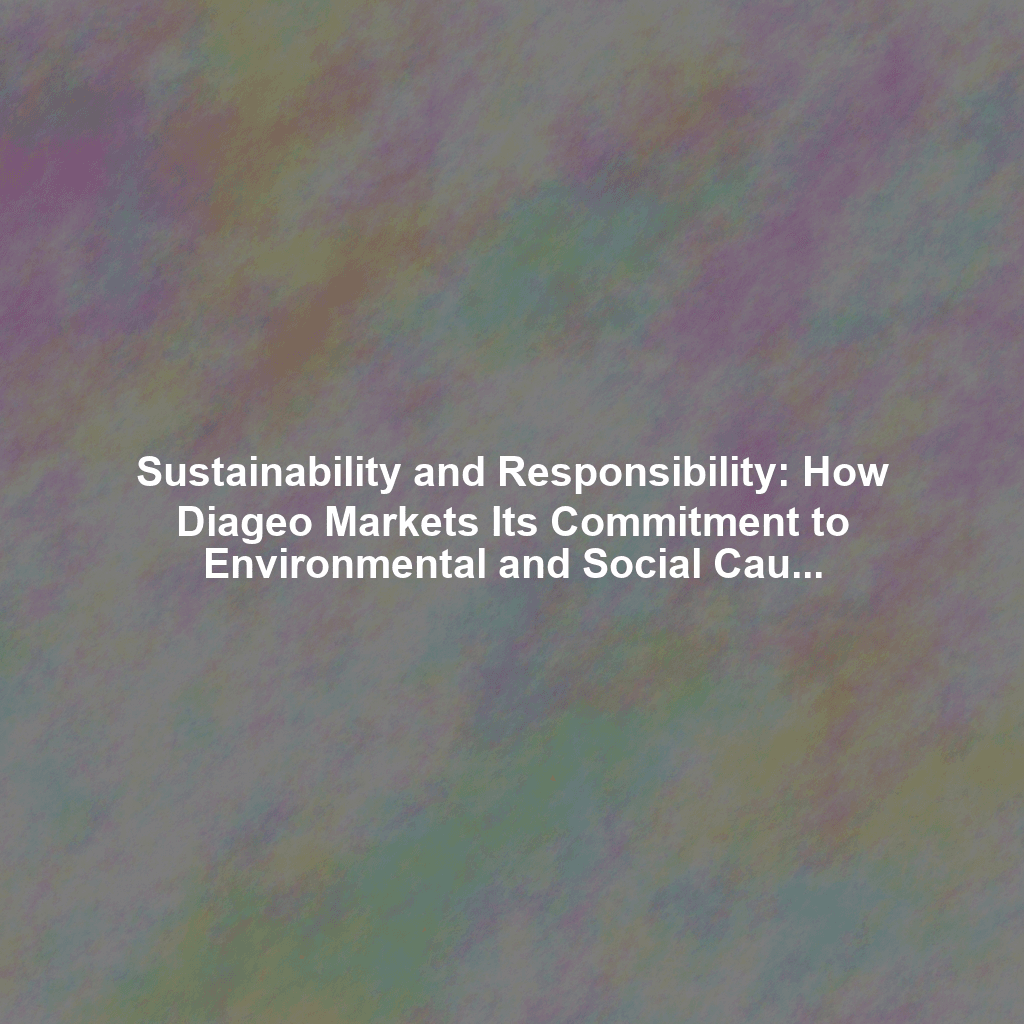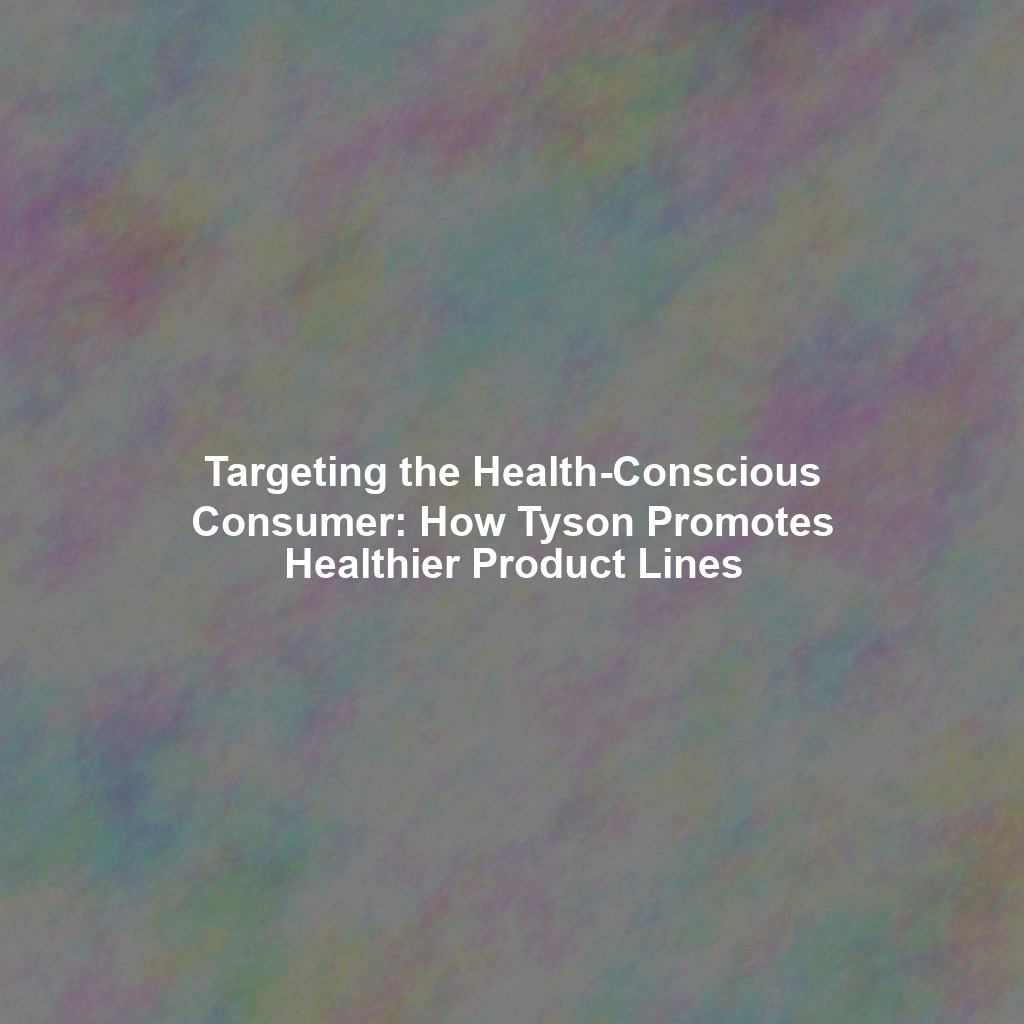In today’s world, consumers are increasingly conscious of the environmental and social impact of the brands they choose. For a global beverage giant like Diageo, makers of iconic brands like Johnnie Walker, Guinness, and Smirnoff, demonstrating a genuine commitment to sustainability and responsible drinking isn’t just a matter of ethical responsibility; it’s a crucial element of their marketing strategy. Diageo understands that building a strong brand reputation hinges on demonstrating tangible action and transparent communication about their environmental and social initiatives.
Integrating Sustainability into the Diageo Brand Narrative
Diageo doesn’t treat sustainability as a separate marketing add-on. Instead, they weave it into the core of their brand narratives. This strategic integration allows them to connect with consumers on a deeper level, showcasing their values and building trust. The company’s “Society 2030: Spirit of Progress” plan serves as the backbone for many of their initiatives and marketing campaigns. This ambitious plan outlines goals for water stewardship, carbon reduction, and positive social impact, providing concrete evidence of their commitment. Let’s delve into some key areas.
Water Stewardship: Protecting a Precious Resource
Recognizing that water is essential to their business and the communities where they operate, Diageo has made water stewardship a cornerstone of their sustainability efforts. Their marketing often highlights their efforts to reduce water usage in their production processes and to replenish water in water-stressed areas. For example, campaigns might feature partnerships with local communities to restore watersheds or invest in water-efficient technologies in their distilleries. They communicate this through social media campaigns, website content, and even integrated messaging within product packaging where relevant. The effectiveness of these campaigns lies in demonstrating tangible results and showcasing the positive impact on local communities.
Carbon Reduction: Building a Low-Carbon Future
Addressing climate change is another critical focus for Diageo. Their marketing strategies showcase their commitment to reducing their carbon footprint across their entire value chain, from sourcing raw materials to distribution. Examples include investing in renewable energy, optimizing logistics, and exploring sustainable packaging options. Communicating these efforts often involves highlighting the use of renewable energy in their distilleries, showcasing their progress toward carbon neutrality, or promoting products with eco-friendly packaging. By openly communicating their progress and challenges, Diageo builds credibility and demonstrates their long-term commitment to environmental stewardship. They often leverage data and statistics in their marketing materials to reinforce their claims and demonstrate tangible progress.
Responsible Drinking: Promoting Moderation and Combating Harmful Use
As a leading alcohol producer, Diageo recognizes its responsibility to promote responsible drinking and combat harmful alcohol consumption. Their marketing initiatives in this area focus on encouraging moderation, preventing underage drinking, and addressing alcohol-related harm. This includes public awareness campaigns that promote responsible drinking habits, partnerships with organizations working to prevent drunk driving, and educational programs targeting young people. Importantly, Diageo avoids promoting excessive consumption in any of their marketing materials. Campaigns often feature simple, direct messaging about drinking responsibly and providing resources for those who need help. This approach is vital for maintaining a positive brand image and building trust with consumers.
Measuring the Impact: Brand Perception and Consumer Engagement
Diageo actively tracks the impact of its sustainability and responsible drinking initiatives on brand perception and consumer engagement. They conduct regular consumer surveys and monitor social media sentiment to gauge how consumers perceive their efforts. They also track key performance indicators (KPIs) related to their sustainability goals, such as water usage, carbon emissions, and the reach of their responsible drinking campaigns. This data-driven approach allows them to refine their strategies and ensure they are making a meaningful impact. A positive shift in brand perception linked to their sustainability efforts can lead to increased brand loyalty and positive word-of-mouth marketing.
The Effectiveness of Diageo’s Approach
Diageo’s commitment to sustainability and responsible drinking appears to be resonating with consumers. By integrating these values into their marketing campaigns, they are building a stronger brand reputation, attracting environmentally and socially conscious consumers, and contributing to a more sustainable future. The key to their success lies in their transparency, their commitment to tangible action, and their ability to connect with consumers on a personal level. However, continued scrutiny and independent verification of their claims are crucial for maintaining trust and ensuring their efforts are truly making a difference.
Furthermore, the effectiveness of their campaigns hinges on consistent execution and long-term commitment. Short-term, opportunistic campaigns are less likely to resonate with consumers and can even lead to accusations of “greenwashing.” Diageo appears to understand this and has invested in building long-term partnerships and implementing sustainable practices across their operations.
Conclusion
Diageo’s approach to sustainability and responsible drinking marketing demonstrates a clear understanding of the evolving consumer landscape. By integrating these values into their core brand narratives, they are not only building a more sustainable business but also strengthening their brand reputation and connecting with consumers on a deeper level. While there is always room for improvement and further transparency, Diageo’s commitment to these issues sets a positive example for other companies in the alcoholic beverage industry and beyond. Their ongoing efforts to measure and refine their strategies will be crucial for maintaining their credibility and ensuring they continue to make a positive impact on the environment and society.
 Skip to content
Skip to content

